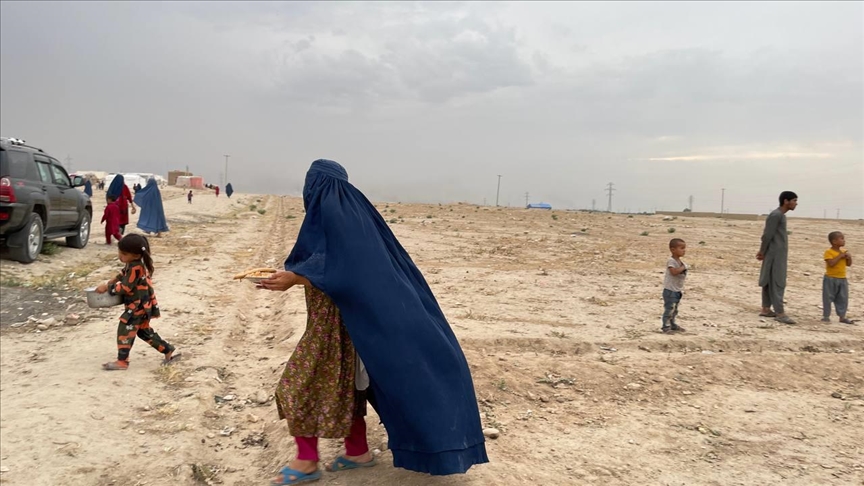UN aid chief visits Afghanistan to raise concerns over women's rights
Latest visit by UN delegation comes 1 month after Taliban banned Afghan women from working in national and international NGOs

NEW YORK
The UN’s aid chief visited Afghanistan on Monday to engage with the Taliban, the country's de facto authorities, to convey messages on the need to reverse policies banning women from public life, said a spokesman.
The latest visit by Undersecretary-General for Humanitarian Affairs Martin Griffiths along with the President and Chief Executive Officer of Save the Children US, Janti Soeripto, the Secretary General of Care International, Sofia Sprechmann Sineiro, and the Deputy Executive Director of UNICEF, Omar Abdi, comes one month after the Taliban banned Afghan women from working in national and international non-governmental organizations (NGOs).
The recent ban put some programs on hold, sowing fears that the already dire humanitarian situation in Afghanistan will get worse, said UN spokesman Stephane Dujarric.
Some 28 million people are in need of humanitarian aid in Afghanistan, a 350% hike in just five years, according to the UN.
The UN's top female diplomat Amina Mohammed, Executive Director of UN Women Sima Bahous and Assistant Secretary-General of the Department of Political, Peacebuilding Affairs and Peace Operations, Khaled Khiari were also in Afghanistan last week to hold talks with the Taliban.
The Taliban regime has recently moved to close universities to female students across the country until further notice and has barred girls from attending secondary school, restricted women and girls’ freedom of movement, excluded women from most areas of the workforce and banned women from using parks, gyms and public bath houses.
The Taliban's return to power in Afghanistan on Aug. 15, 2021 followed by the disruption of international financial assistance has left the worn-torn country in economic, humanitarian and human rights crises.
Women and girls have been deprived of their rights, including the right to education, and disappeared from public life under the Taliban.
Thousands of women have since lost their jobs or were forced to resign from government institutions and the private sector.
Girls have been prevented from attending middle and high schools. Many women have demanded that their rights be reinstated by taking to the streets, protesting and organizing campaigns.








